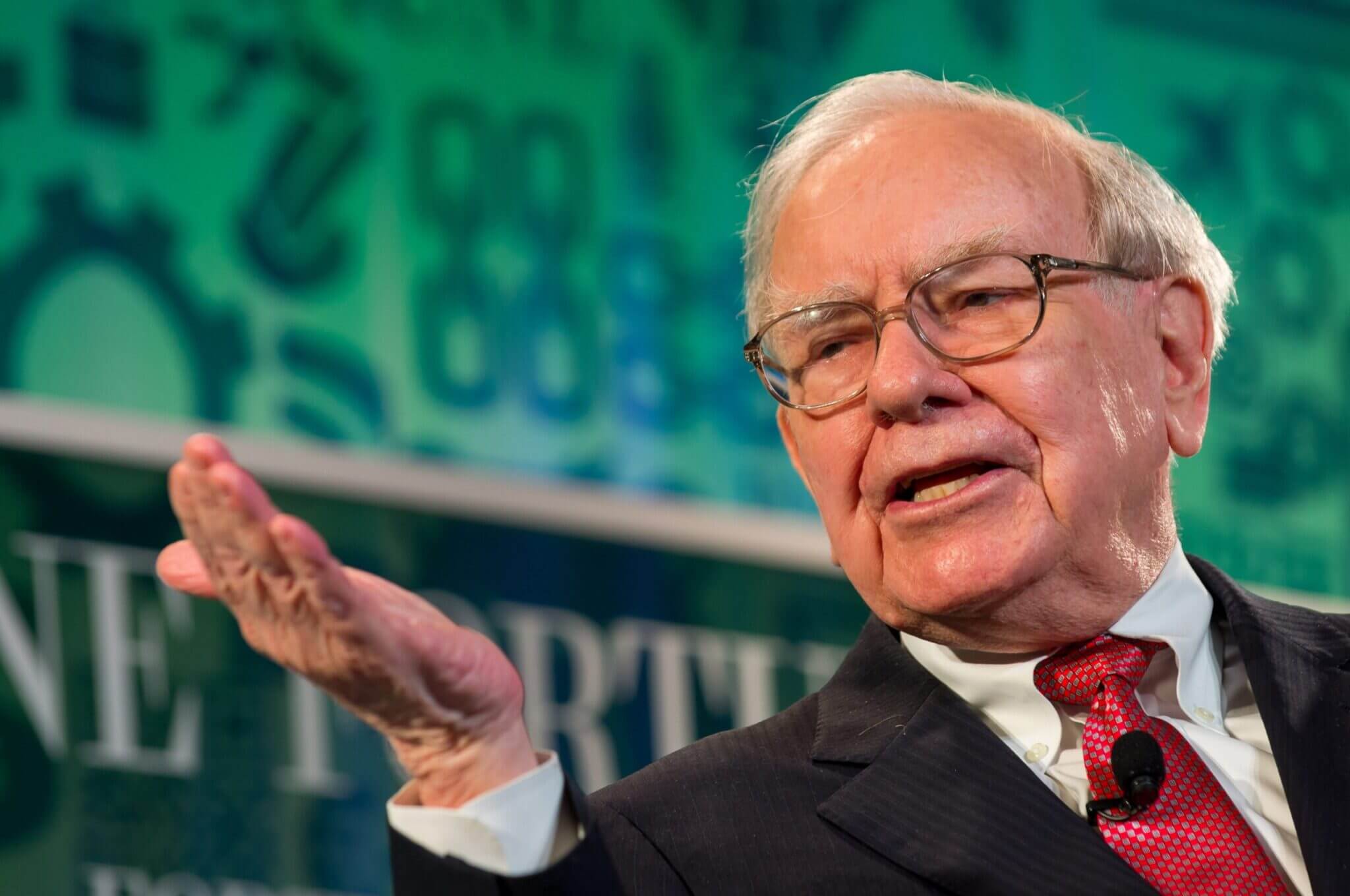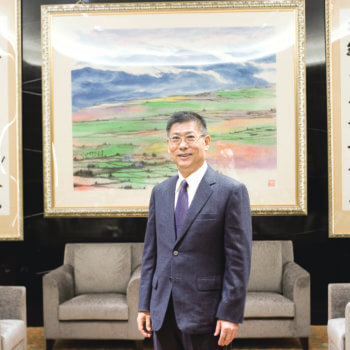Did you know that if you invested $10,000 in Berkshire Hathaway (Warren Buffett’s company) in 1945, your investment would’ve grown into $30M by 2005? (At the time of writing this piece, the price for a single share stands at $ 190,000.00). In contrast, if you invested the same amount in the S&P 500 in the same time period, your investments would have only matured into $500,000. The phenomenal growth of Berkshire Hathaway in the past 50 years (refer to below) is largely unprecedented but yet widely acknowledged and revered by many financiers and management enthusiast alike. Berkshire’s growth is a true reflection and testament of the effectiveness of Buffett’s leadership. A unique form of leadership that can be a powerful source of sustainable growth and competitive advantage for companies today; indeed one that is worth exploring, understanding and maybe even channeling.

Tracing Buffett’s Path To Success

Warren Buffett is the current chairman and CEO of Berkshire Hathaway, now a multinational conglomerate holding company, based in Omaha, Nebraska. He is considered one of the greatest investors to live and is often dubbed the ‘Oracle of Omaha’.
Buffett was born in 1930 to a family of six. Ever since a very young age, Buffett had an immense passion for ‘money-making’. His childhood is defined by his many adventurous, passionate and often successful attempts at making money. Notably, he enjoyed selling confectioneries to households in his neighborhood and “became incredibly successful in making money by delivering newspapers, selling golfballs and stamps, and detailing cars…”. With this passion, Buffett found his way into finance, as he began exploring financial investments in high school. It was a field in which Buffett saw a lot of lucrative potential. By senior year, he wrote in the caption of his yearbook picture, that he would be “a future stockbroker.”
Buffett eventually went to pursue a Bachelor degree in Business Administration in the University of Nebraska-Lincoln. He graduated in 1950 and further earned a Master’s Degree in Economics from the renowned Columbia Business School, of which he completed in 1951.
Upon graduation, Buffett became a stockbroker and a night teacher at the University of Nebraska-Omaha. In 1954 Buffett joined the financial firm of legendary financier Benjamin Graham with a starting salary of $12,000 a year. This lasted 2 years, as Benjamin Graham retired and dissolved his firm in 1956. By that time, Buffett’s life savings were well over $174,000 and it was then he started Buffett Partnership Ltd. This nonetheless only marked the beginning, as Buffett began starting and operating more partnerships targeting different areas of the financial market. By 1960, Buffet had seven specific partnerships in operation.
In 1962, Buffett became a millionaire as a result of the various partnerships he was operating then, which by January 1962 had a combined worth of $7,178,500. It was during then, Buffett made the decisive move to merge all the independent partnerships into one major partnership and through it Buffett started to invest and eventually took over a local textile manufacturing firm, Berkshire Hathaway.
Under his control and management, Buffett re-organized the various business structures he already built in place. Specifically, in 1969 Buffett liquidated his partnership and distributed assets to his partners, among them the shares of Berkshire Hathaway. Eventually, Buffett transformed Berkshire into the central hub for his future investments and operations when he began to pursue his investments through the company.
In 1979, Berkshire Hathaway became public and the shares ended trading at $1,310 placing Buffett on the Forbes list for the first time, with a net-worth of $640 million. The periods of 1979 to 1990, saw intensive and widespread investments made by Berkshire Hathaway, some of which were in substantial businesses and companies such as the ABC network, Buffalo Evening News and the Washington Post Company to name a few. By 1990, Buffett had become a billionaire when the shares for Berkshire Hathaway closed at $7,175 a share. Since then, Berkshire has continued to invest in many prominent businesses and corporations, with an increasing tendency to “buy them out entirely”. In 2008, Forbes named Buffett the richest man in the world based on the success of Berkshire Hathaway, and estimated that he had a net worth of $62 billion.
Despite his estimated net-worth, Buffett’s base annual salary is a surprising $100,000 and it has remained so for the last 30 years, with no additional compensation that is common with many investors. Even more surprising is the fact that though he owns directly and beneficially an estimate of roughly 2,000,000 common stocks of Berkshire, he has pledged to give 83% of his fortunes here to charity, in the form of stock-gifts.
Interesting Traits That Define Buffett
What I find most fascinating about Warren Buffett and the way he leads his company is his frugality in spite of his immense success, his emphasis on long-term outlooks and his very disciplined nature in executing decisions. These qualities make Buffett a very ‘no-nonsense’ type-investor, who will always seek to promote the continual long-term growth of his company. However, some have also argued that these qualities make Buffett almost too unnecessarily conservative and that as a result, Berkshire is not currently taping its’ full potential for further growth.
Buffett’s Frugality

Despite the fact that he is a self-made billionaire, with an estimated net-worth of $66.7 billion (at the time of writing), Buffett lives an incredibly modest life. He currently resides in the exact same 5 bedroom-house in Omaha, Nebraska he purchased for $31,500 in 1958. With very simple tastes, he is known for his love for cherry Coca-Cola, McDonald’s Hamburgers, intimate games of Bridge with close friends and his religious devotion to sports on Television. He eschews any spending that he does not see a direct value in and as such he has a personal disdain for luxury items normally associated with the rich and famous. Items such as sports-cars, designer clothing and other expensive toys he sees as entirely unnecessary. Buffett has always been concerned with getting a bargain(which to him, means getting the most out of something) and this is perhaps best captured when he admitted he has purchased expensive suits before: “but they just look cheap to me.”
Similar to his personal attitudes to life, in investing Buffett is always carefully looking for the best bargain in the financial market. He is a well known value investor. He looks for stocks “that he believes is undervalued by the market.” Thus, like the bargain hunter that he is, he “tries to find those stocks that are valuable which are not necessarily recognized as such by the majority of other buyers.” This conviction for value has allowed Buffett to make several profitable investments in many businesses that were entirely regarded by others as entirely invaluable such as Berkshire (prior to its acquisition) and the Sanborn Map Company. Even in the management of the Berkshire itself, Buffett has not been concerned with spending unnecessary funds instead focussing all resources to making the company ever more valuable. Thus the company has famously never paid dividend (instead retaining its corporate earnings for further investment, thus, growth) and famously named the corporate jet it finally purchased: ‘Indefensible’. This frugality has of course undoubtedly assisted Buffett in winning the hearts of the people he works with within Berkshire, and also the corporations his holding company owns.
Buffett’s Long-Term Outlook

Even though he is a value investor, his own investment philosophy in regards to businesses is one that is centered on the long-term, as he often says, quite simply: “always invest for the long-term”. In fact, it is well known that Buffet “is not concerned with the supply and demand intricacies of the stock market” which play out dynamically everyday. Rather, Buffett is genuinely interested in the long term prospects of business. As well documented Buffett crucially examines “the overall potential as a company. Holding these stocks as a long term-play, Buffett seeks not capital gain but ownership in quality companies extremely capable of generating earnings. When Buffet invests in a company, he isn’t concerned with whether the market will eventually recognize its worth; he is concerned with how well that company make money as a business.” Buffett has said it himself “I did not…get elated because something had went up or depressed because it went down. If I knew the facts on something and it went down, I bought more of it, because I looked at it as a business.” His long-term outlook driven investments set him apart from his modern day counterparts in the Financial Markets (who are mainly concerned with fast-short term gains) and this has meant greater stability and foresight, which has translated to greater profits for Berkshire. A good example of this is Berkshire’s long-time investments in the Coca-Cola company which has proved incredibly lucrative for Berkshire over the years. (In fact, the Coca-Cola company just recently announced a net-income of $2.8 billion in the second quarter.) This type of outlook has also driven Berkshire to invests in many companies with actual long-term value such as agriculture, food, banks, manufacturing, and established services (such as airlines, rail companies, etc.)
This degree of long-term foresight and patience that define Buffett also reflect on how he actually manages Berkshire as a conglomerate company. Specifically, Buffett is extremely careful and attentive to many of the companies that Berkshire have acquired over the years through intensive investments. Rather than aim for swiftly squeezing the profit out of the subsidiaries, Buffett patiently allows these subsidiary companies to manage themselves choosing to let them grow and naturally fulfill their intrinsic potential. His dedication to this outlook certainly inspires much confidence in the subsidiaries owned ensuring the integrity of Berkshire as a conglomerate holding company.
Buffett’s Discipline

Buffett strictly imposes and follows an extensive list of principles when managing Berkshire and his investments. This can be best exemplified with his dogmatic adherence to the principle he has made famous, about staying within his own ‘competence’. He holds “there’s a whole bunch of things I don’t know a thing about. I just stay away from those. I stay within what I call my circle of competence.” Buffett’s disciplined-adherence to this core principle of his has left some to criticize him as overly conservative and even ignorant. The extent of his discipline was truly tested in the mid-90’s with the rise of dot-com companies. Many saw the informational technology as the future but Buffett sternly opted out, despite wide criticisms, due to his lack of competence on the emerging market. This led many to denounce him and his company as “objects of the past”. However, his disciplined adherence to his principle proved to be in favor of him as the speculative bubble eventually burst, which allowed his company to not only survive but profit. For Buffett the matter is quite simple, “we don’t have to be smart, we just have to be disciplined than the rest.” This quality allows Buffett, as it has in the 90s, to insulate Berkshire from any blind behavior and ensure the survivability and predictable growth of the company,
What does it mean?
As its CEO and the one person ultimately directing Berkshire’s investment activities, Warren Buffett is a great leader. His own frugality coupled with his farsightedness and his self discipline enables him to work rationally, reliably and resolutely on improving Berkshire.
Buffett has once said, when asked in an interview that, success in his definition “is really doing what you love and doing it well.” Buffett no doubt personifies this definition, as it is seems true, money and the normal trappings of wealth are not his true concerns. This is in total contrast to many investors that comprise the financial markets today. Most modern investors only seem to be motivated by instant gratification and monetary interests, culminating in blind and inconsiderate greed. It is questionable whether such incentives are conducive to better business and financial growth, even progressive development in general as we have seen with the 2008 financial crisis.
Regardless, it is also questionable whether Buffett’s recognizable traits and disciplines still hold ground in our complicated market today. For example, Buffett still strictly abstains from technology stocks despite the fact he has been best friends with Bill Gates for over 15 years and living in an increasingly technological world. His avoidance and disdain for technology may seem ignorant. Especially when one considers the immense value contributed by technology companies in the past decade alone. Take Apple Inc., for example, and consider how some of its’ innovative products have actually revolutionized the way we live. Indeed, technical analysis reveals that stock prices and trends have also reflected this.
This has led many to dismiss Buffett as a simple man, but perhaps, being a simple man in a complicated world is exactly what is required for uncomplicated success. This may perhaps be true as Buffett’s business approach has stood the test of time and different economic contexts. Indeed, Berkshire Hathaway, remains today, the most expensive company traded on the U.S. stock exchange. A true hallmark of sustained success that should not be overlooked.






























